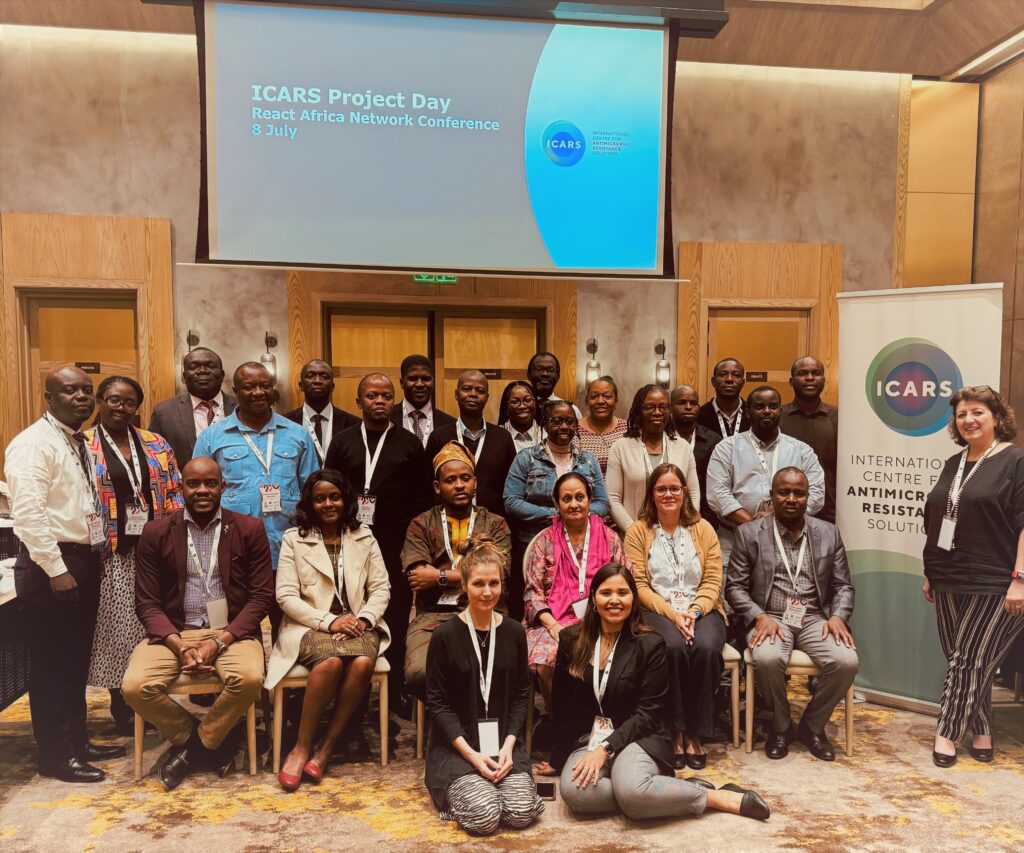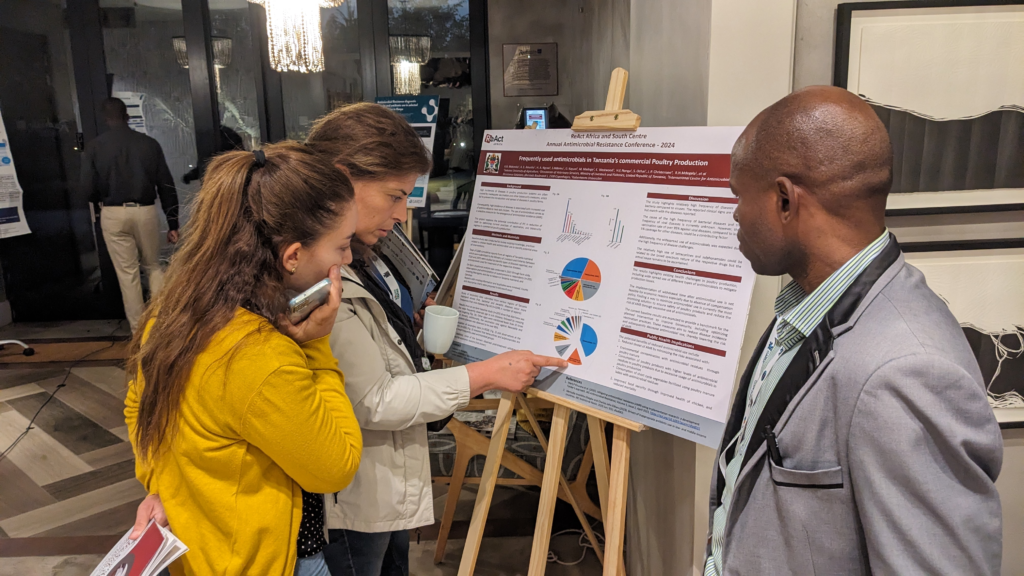The ReAct Africa and South Centre Annual AMR Conference brought together experts, researchers, and policymakers from across Africa and beyond to address the challenges posed by Antimicrobial Resistance (AMR). The event featured dynamic discussions, presentations, and collaborative sessions focused on innovative solutions and sustainable practices. As a conference partner, ICARS participated actively, sharing insights from its projects and learning from others working collaboratively to tackle this critical global health issue.
ICARS Projects Day: Spotlight on Sustainable Impact and Behaviour Change
Ahead of the conference, ICARS hosted a dedicated Project Day, providing a platform for ICARS project partners to connect and share insights. The day featured three engaging sessions, emphasising sustainable impact, the application of behaviour change models, and effective communication strategies to enhance the dissemination of project results. Participants explored ways to incorporate sustainable practices into intervention research, reflecting on how to drive behavioural change and improve stakeholder engagement.

National Action Plans and Youth Leadership in Focus
Day 1 of the conference showcased the diverse approaches of Zambia, Tanzania, Ethiopia, Nigeria, and Kenya in implementing National Action Plans (NAPs) to address AMR. Discussions highlighted the critical role of research in forming strong partnerships, with ICARS presenting the OHAMR research agenda and the Fleming Fund detailing its efforts to support AMR surveillance and data availability in Africa.
Youth leaders across Africa presented their initiatives to connect with their peers and raise awareness of AMR, underscoring the importance of engaging the next generation in mitigating AMR. The day concluded with a panel discussion on the challenges and opportunities of using vertical programmes to address AMR, emphasising the need for diverse perspectives and innovative approaches.

Showcasing Context-Specific Solutions Across the One Health Spectrum
Day 2 featured presentations from ICARS researchers on context-specific AMR solutions across the One Health spectrum, including projects on:
- combating antimicrobial residues in poultry in Zambia
- controlling AMR dynamics from chickens in Tunisia
- optimising vaccination regimes in Tanzania.
The day also included reflections on policies and governance and interactive sessions on animal, human, and environmental health.

Innovative approaches were a key theme, with discussions on the potential of big data, advancements in antibiotic R&D, and sustainable investment in AMR efforts, including the SNAP 1 project in Malawi. The day concluded with a gala dinner celebrating ReAct Africa’s 10th anniversary, highlighting a decade of impactful work in the mitigation of AMR.
Enhancing Access and Community Engagement
The final day of the conference focused on enhancing access to health technologies, emphasising market-shaping models and economic interventions to improve access to antibiotics and diagnostics. Community engagement emerged as a central theme, with presentations highlighting grassroots efforts in Kenya, the role of faith-based sectors, innovative agricultural practices, and the media’s influence on public perception and policy.
The conference concluded with an award ceremony recognising outstanding contributions in the fight against AMR, and closing remarks summarising key takeaways and future steps. Participants left with a renewed commitment to drive global efforts against AMR, inspired by the rich discussions and collaborative spirit of the event.

Moving Forward Together
ICARS thanks all participants, partners, and organisers, including ReAct Africa and South Centre, for creating an inspiring platform to advance AMR solutions. As the conference wraps up, the momentum continues, with ICARS and its partners committed to pushing forward innovative, sustainable, and community-driven strategies to combat antimicrobial resistance globally.

